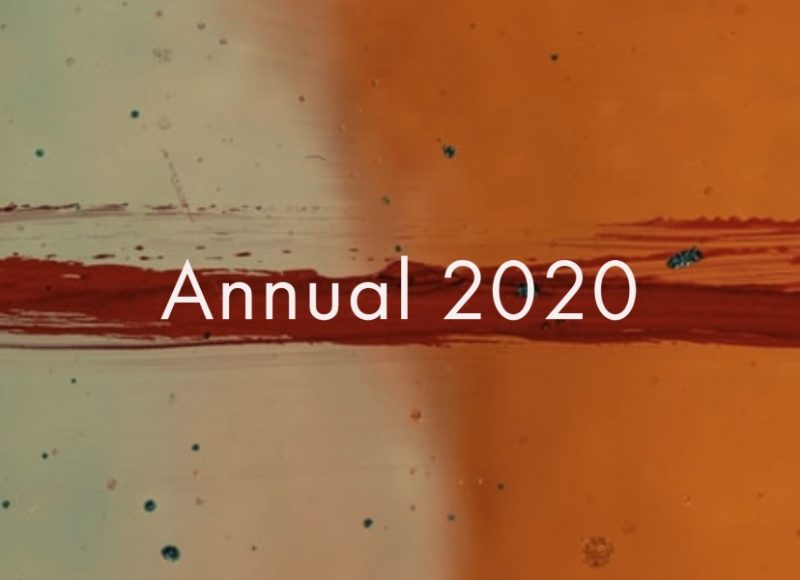
Annual 2020
Annual 2020
2020 has been a challenging year for all of us. The Covid-19 pandemic has changed our daily lives, interactions, communications, as well as our research environment and priorities. The long-term effects on international politics are still difficult to predict, but it has become increasingly clear that the pandemic has furthered and exacerbated societal divisions and social inequalities within and between societies. 2020 was mainly dominated by lockdowns, the closure of borders, travel bans, intrusions on democratic rights and liberties, and a rise in nationalistic and xenophobic rhetoric. The pandemic has further highlighted the lack of global solidarity as well as shifting power balances, including the EU’s waning power in the immediate neighbourhood. The effects of the pandemic on the economies and political systems of countries in the Western Balkans as well as the MENA region are yet to be determined, but the situation is certainly worrisome. Moreover, extremist and radical groups have been successfully exploiting the pandemic for their own propaganda and the spread of fake news. At the same time, the murder of George Floyd mobilized thousands of people to stand up against racism and discrimination and the election of Joe Biden as 46th President of the United States has given rise to hopes for a renewal of multilaterism and transatlantic relations.
As an independent institute situated at the juncture between academic and policy-oriented research, the oiip team has been closely following these developments. In early summer 2020, we published our first “Corona Papers”, a series of policy analyses that deal with the mid- and long-term effects of the pandemic on certain regions such as Turkey or the Western Balkans, as well as on issue areas such as global gender equality and extremist radicalisation.
Lockdowns and travel restrictions have had a serious impact on our work at the oiip. After all, field research, interviews, workshops, conferences, meetings, dialogue and exchange make up an essential part of our activities. While this has certainly affected our research practices, we have explored new platforms and ways of exchange. Online panels and seminars have helped overcome spatial distance and enabled debates with renowned experts across the world, but also opened access to scholars and activists with limited access to international travel. This has brought new voices to our conversations. Moreover, digital methodologies have helped us rethink the concept of the “field” and how we engage with actors relevant to our research. In a time where our radius of movement and interaction has been strongly limited, research on developments in other parts of the world has become more relevant than ever. Despite the “localization” of our lives, the pandemic has also highlighted the interconnectedness of the local and the global.
Beyond the pandemic, our research in 2020 focused on our three major research areas: 1) Security politics and political violence, 2) Europe and its neighbourhood and 3) Innovation policy in a global context. Under these focal points, we conducted research on topics such as border security, terrorism, extremist and radicalism, de-radicalization, geostrategic shifts in Europe’s neighbourhood, the state of democracy and the rise of authoritarianism, and innovation policies and their implementation in the MENA region. You can find a list and short description of the projects conducted and the policy analyses, articles and book contributions published in 2020 in this report. We are proud that we have been able to produce in total 35 publications, successfully acquire new research projects of which three will be starting in 2021, organize and implement 15 public events, take part, despite the pandemic, in 35 external conferences and workshops, and train 10 interns. Our experts were interviewed by national and international media 91 times and we have taught more than 486 hours of classes at universities.
In 2020, we were also able to start new co-operations. Besides our long existing co-operations with the Austrian Ministry of Defense and the Danube University Krems, we are now also collaborating with the University of Vienna in the form of joint research activities, events, teaching and trainings. With national radio Ö1, we started an ongoing jointly event series, the so-called Europagespräche, the “Europe talks” which bring together experts from different fields for discussions on Europe, EU politics, and foreign policy. We have further worked with the US Embassy in Vienna for the “A brand new world. Shifting powers in international politics” online series. The series so far addressed the changing US policy towards the Middle East Conflict and its repercussions for the region, the future of democracy and social movements in the United States, as well as US policies towards China and Beijing’s regional and global strategies. The series will be continued throughout 2021.
In 2020, the oiip also started an initiative to internationalize our staff and expertise. We successfully supported the project applications of excellent post-doctoral scholars for the Ernst Mach Fellowship of the Austrian Exchange Service (OeAD) as well as for the Swedish Research Council. The oiip is proud that all applications were approved and happy to be hosting Irene Constantini (University of Naples), Yasmin Chilmeran (Swedish Institute of International Affairs), and Sanna Strand (Stockholm University) in Vienna in 2021. This is also one of the reasons why we are publishing this report on our activities in English.
Last but not least, the oiip has relocated to a new address. Our office is now at: Währinger Straße 3/12, 1090 Vienna.
We look forward to welcoming you on our new premises as soon as it is feasible and safe!
Cengiz Günay Saskia Stachowitsch